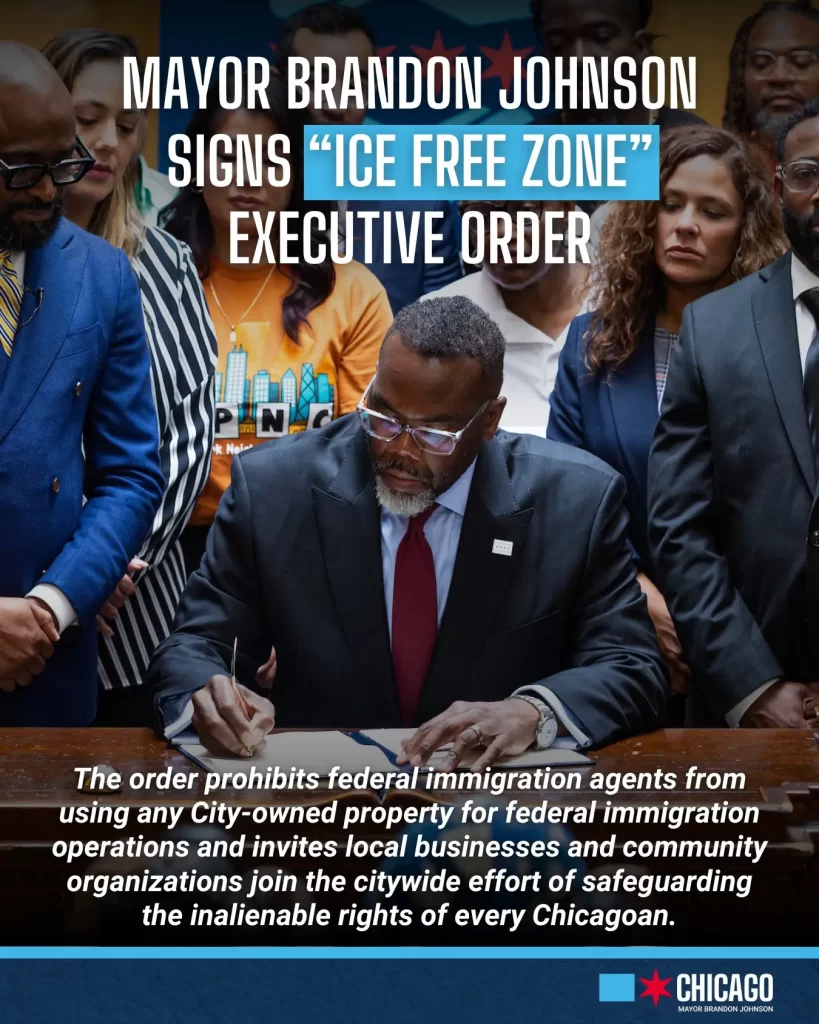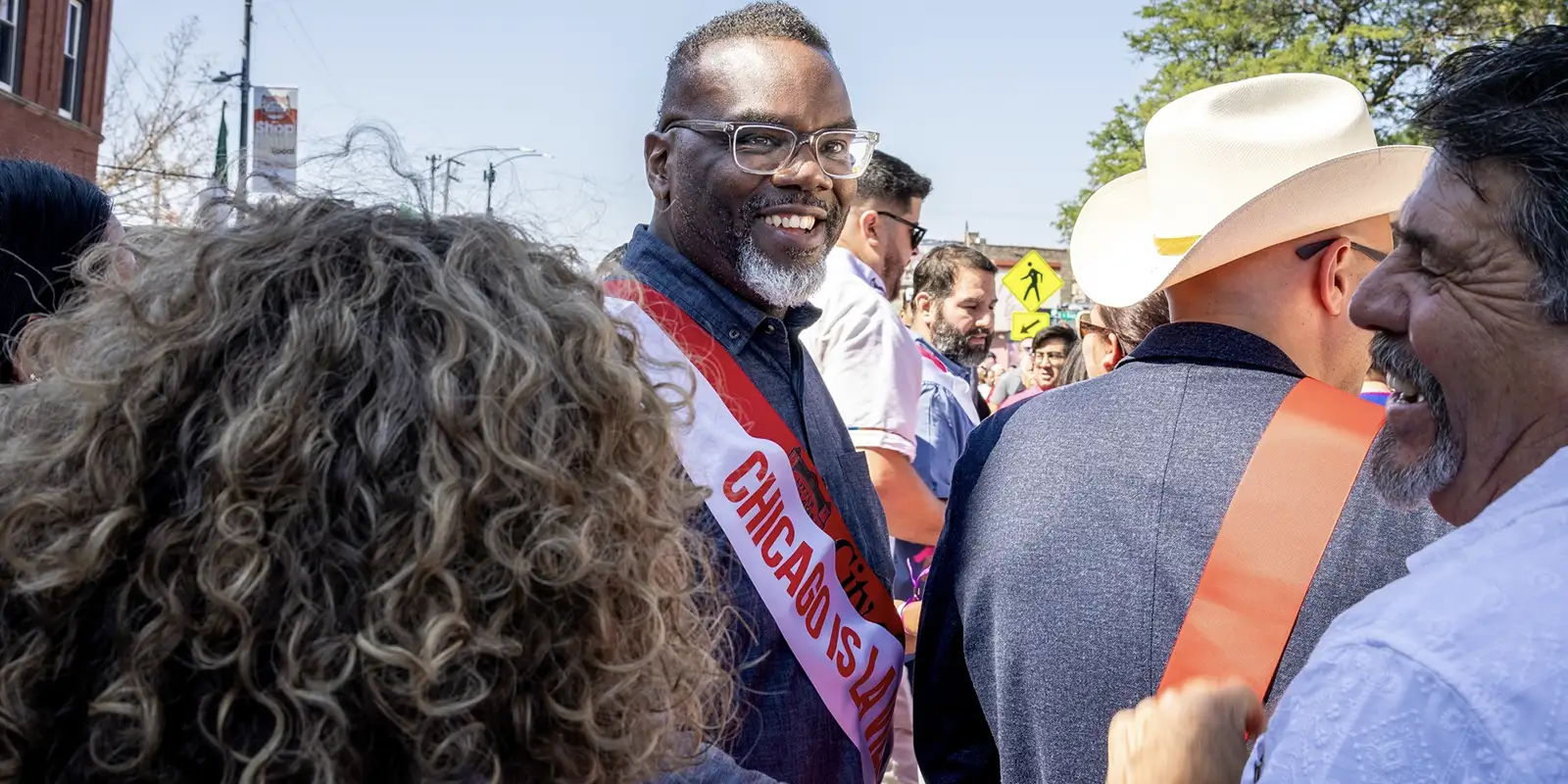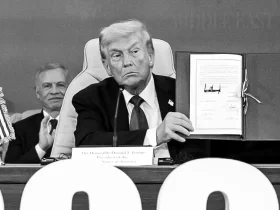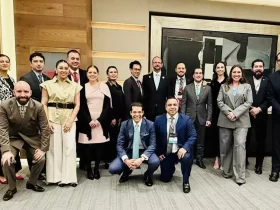Chicago is once again at the center of the national debate with a measure that promises to mark a turning point in the relationship between local governments and federal authorities. Mayor Brandon Johnson signed an executive order making the city an “ICE-free zone,” a bold step that seeks to protect immigrant communities and limit the presence of federal agents in public spaces.
The initiative, which is already generating political tensions at the federal level, prohibits Immigration and Customs Enforcement (ICE) and Customs and Border Protection (CBP) from using municipal properties—such as schools, libraries, parks, or parking lots—to carry out raids, operations, or arrests. In the mayor’s words, the goal is clear: “to defend the rights of residents and put an end to the abuses that have sown fear and mistrust in our communities.”
A civic shield against federal excesses
According to the local administration, this order seeks to establish a “civic shield” that limits practices considered harmful or arbitrary in immigration control. From now on, every building or piece of land belonging to the city must have visible signs indicating that these spaces cannot be used for the enforcement of civil immigration laws, nor as preparation or processing areas.
But the measure is not merely symbolic. The various municipal departments will have five days to identify locations that could be vulnerable to these activities and place the appropriate signage. In addition, any attempt to misuse these spaces must be reported directly to the City Council and the City Legal Advisor.
The Johnson administration has also extended an invitation to businesses and private organizations to voluntarily join this cause by placing official signs declaring their properties ICE-free zones. It is a gesture of local resistance, but also of solidarity with thousands of immigrant families who, for years, have lived under the shadow of deportation.
A response to escalating tensions
The executive order comes after weeks of growing tension between the local administration and federal agents deployed in Illinois. Various videos posted on social media showed violent raids, the use of tear gas in front of schools, and even the temporary detention of a sitting councilwoman.
According to Chicago authorities, these incidents were the last straw. Councilwoman Jessie Fuentes publicly denounced that ICE agents have acted “with physical violence” and have even transferred people to hospitals due to injuries sustained during the operations.
The Department of Homeland Security (DHS) confirmed that more than 900 people have been arrested in Illinois since September 8 as part of “Operation Midway Blitz,” promoted by the Donald Trump administration. For Mayor Johnson, this represents not only an abuse of power, but a direct threat to the social fabric of the city.
“No one is above the law”

During a press conference, Johnson was emphatic: “If Congress does not control this administration, Chicago will.” With this statement, the mayor made it clear that his government will not remain passive in the face of what he considers a violation of human rights and an attempt to undermine local democracy.
The mayor assured that the new order does not prevent the enforcement of criminal laws or legitimate judicial investigations, but is aimed exclusively at civil immigration operations. In other words, the city does not seek to interfere with justice, but to prevent immigrant families from being treated as criminals.
For his part, Police Superintendent Larry Snelling clarified that Chicago officers will not detain federal agents, but will work to ensure compliance with the executive order. “We will use all available tools to protect the integrity of our communities,” Johnson added.
A clash with Washington
As expected, the federal government’s response was immediate and forceful. On social media, the White House’s official rapid response account called the measure a “repugnant betrayal,” accusing the mayor of “helping criminals and traffickers.”
Washington viewed the executive order as a “dangerous escalation of the Democrats’ sanctuary agenda,” while in Chicago many see it as an act of dignity and local autonomy in the face of federal interventionism.
Beyond politics: Chicago’s message
Beyond the headlines and conflicting statements, what is at stake is something much deeper. With this decision, Chicago reaffirms its identity as a sanctuary city, a place where diversity is not only tolerated but protected.
Mayor Johnson’s message is as political as it is humane: no resident should live in fear because of their immigration status. At a time when the issue of immigration is once again polarizing the country, the “ICE-free zone” has become a symbol of the power of local communities to say “enough is enough” and draw their own boundaries against abuse.
In the mayor’s own words: “Defending our communities is not an act of rebellion, it is an act of justice.” And, for now, Chicago has decided to do so with strength, conviction, and a clear message: the city belongs to its people, not to fear.








































Leave a Reply